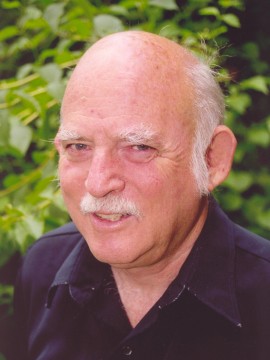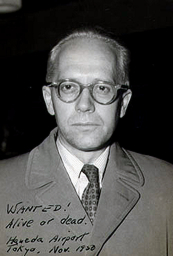View our current editors, staff, editorial board, and former editors.
Current Editors
[ ] indicates Area of Coverage for Book Reviews and the initial Desk Review of manuscript submissions.
Editor
Soo Yeon Kim, The University of British Columbia, Vancouver, Canada
Associate Editors
John Barker, The University of British Columbia, Vancouver, Canada [Australasia and the Pacific Islands]
Jie Gao, National University of Singapore [China and Inner Asia]
Erik Mobrand, Seoul National University, Seoul, Korea [Asia General] [Korea]
Kai Ostwald, The University of British Columbia, Vancouver, Canada [Southeast Asia]
Manjusha Nair, George Mason University, Fairfax, USA [South Asia and the Himalayas]
Apichai W. Shipper, Georgetown University, Washington, DC, USA [Japan]
Managing Editor
Carolyn Grant
Book Review Editor
Daniel C. Kane
Student Assistants
Alisa Zeng (book reviews)
Veda Dinesh (book reviews)
Siran Wang (articles)
Editorial Board
Our editorial board includes members from across the world.
Editorial Board
* indicates members of the Executive Committee
Aries A. Arugay, University of the Philippines, Philippines
Jacques Bertrand, University of Toronto, Canada
Paul Bowles, University of Northern British Columbia, Canada *
Tim Bunnell, National University of Singapore, Singapore
Neera Chandhoke, University of Delhi, India
Timothy Cheek, The University of British Columbia, Canada
David Chiavacci, University of Zurich, Switzerland
Thomas B. Gold, University of California, Berkeley, USA
Alex Golub, University of Hawai’i at Manoa, USA
Natasha Hamilton-Hart, University of Auckland, New Zealand
John Harriss, Simon Fraser University, Canada
Jack Hayes, Kwantlen Polytechnic University, Canada
Elaine Ho, National University of Singapore, Singapore
Humeira Iqtidar, King’s College London, UK
Niraja Gopal Jayal, Jawaharlal Nehru University, India
Robin Jeffrey, National University of Singapore, Singapore
Anja Jetschke, Georg-August-Universität Göttingen, Germany
Dal Yong Jin, Simon Fraser University, Burnaby, Canada
Sunila Kale, University of Washington, USA
David Kang, University of Southern California, USA
Saori N. Katada, University of Southern California, USA
Tsuyoshi Kawasaki, Simon Fraser University, Canada
Sébastien Lechevalier, L’École des Hautes Études en Sciences Sociales, France
David Leheny, Waseda University, Japan
Xiaojun Li, The University of British Columbia, Canada
Johan Lindquist, Stockholm University, Sweden
Hy Van Luong, University of Toronto, Canada
Kimberley Manning, Concordia University, Canada
Duncan McCargo, Nanyang Technological University, Singapore
Maznah Mohamad, National University of Singapore, Singapore
Hannes B. Mosler, Universität Duisburg-Essen, Duisburg, Germany
Rahul Mukherji, Heidelberg University, Germany
Scott North, Osaka University, Japan
Lynette Ong, University of Toronto, Canada
Robert Pekkanen, University of Washington, USA
John Ravenhill, University of Waterloo, Canada
Jacob I. Ricks, Singapore Management University, Singapore
Sanjay Ruparelia, Toronto Metropolitan University, Canada
HaeRan Shin, Seoul National University, South Korea
Sara Shneiderman, The University of British Columbia, Canada
John T. Sidel, London School of Economics, UK
Josephine Smart, University of Calgary, Canada
Nandini Sundar, University of Delhi, India
Louise Tillin, King’s College London, UK
Sarah Turner, McGill University, Canada
Tuong Vu, University of Oregon, USA
Gungwu Wang, National University of Singapore, Singapore
Holly Wardlow, University of Toronto, Canada
Thomas Wilkins, The University of Sydney, Australia
Jaeyoun Won, Yonsei University, South Korea
Biao Xiang, Max Planck Institute for Social Anthropology, Germany
Jie Yang, Simon Fraser University, Canada*
Former Editors
We extend our gratitude to our former editors.
Mark Turin, Interim Editor, 2023-2024

Mark Turin, 2023-2024
Vols 96.3 – 97.2
Mark Turin (PhD, Linguistics, Leiden University, 2006) is an anthropologist, linguist and occasional radio presenter, and an Associate Professor at the University of British Columbia. He is cross-appointed between the Institute for Critical Indigenous Studies and the Department of Anthropology. Turin writes and teaches on language reclamation, revitalization, documentation and conservation; language mapping, policies, politics and language rights; orality, archives, digital tools and technology. Indigenous methodologies and decolonial practice inform and shape his teaching and research. He is the author (or co-author) of five books, the (co)editor of 12 volumes, and he edits an open access series on oral literature.
Hyung-Gu Lynn, 2008-2023

Hyung-Gu Lynn, 2008-2023
Vols. 81.2 – 96.2
Hyung-Gu Lynn’s research focuses on modern and contemporary Korea (South and North) and Japan, covering imperialism, colonialism, developmentalism, globalization, migration, and mediatization. He maintains an interest in metacognition, fountain pens, and boxing, and clings to the chimerical notion that literacy, curiosity, precision, eclecticism, thoroughness, self-awareness, and logic (but not typos) matter in academia. He obtained his Ph.D. at Harvard University, and teaches as the AECL/KEPCO Chair in Korean Research in the Department of Asian Studies at UBC.
Timothy C. Cheek, 2002–2008

Timothy C. Cheek, 2002–2008
Vols. 75.3–81.1
Timothy Cheek came to UBC and Pacific Affairs from Australia by way of the United States. He obtained his doctorate degree in History and East Asian Languages at Harvard University. His editing experience began with the CCP Research Newsletter. His area of specialty is China, with a focus on China’s intellectuals and Chinese Communist Party history. He is the Louis Cha Chair in Chinese Research at the Institute of Asian Research.
Glen Peterson, Interim Editor, 2000–2002

Glen Peterson, Interim Editor, 2000–2002
Vols. 73.4–75.2
Glen Peterson obtained his doctorate degree from the University of British Columbia. His area of specialization is modern Chinese history with a focus on South China, Chinese transnationalism, and the history of education in China. His publications include Education, Culture and Identity in Twentieth-Century China (with Ruth Hayhoe and Yongling Lu) and The Power of Words: Literacy and Revolution in South China, 1949–1995.
Terry McGee, Interim Editor, 1999–2000

Terry McGee, Interim Editor, 1999–2000
Vols. 72.4–73.3
Terry McGee obtained his masters and doctorate degrees at the University of Wellington, New Zealand. He was the recipient fo the UBC Isaac Killam Research Prize in 1996, and the Erskine Fellowship from the University of Canterbury in New Zealand in 2000. He was awarded the Vautrin Lud Prize in Geography by the International Geographical Union, which is the top international prize in geography. At UBC, he was a director at the Institute of Asian Research and a professor at the Faculties of Arts and of Graduate Studies.
Ian D. Slater, 1987–1999

Ian D. Slater, 1987–1999
Vols. 60.3–72.3
Dr. Ian D. Slater (b. 1941) is an author of best-selling thrillers. He is a native of Australia where he worked for the Australian navy and the Australian Joint Intelligence Agency, after which he became a marine geology technician in New Zealand and then in Canada. He published his first adventure-thriller Firespill in 1977, the same year he obtained his doctorate degree in political science at the University of British Columbia. He is the author of 23 novels, as well as various stage plays, short stories, and a critically acclaimed literary biography of George Orwell.
R.S. Milne, 1985–1987

R.S. Milne, 1985–1987
Vols. 58.1–60.2
Robert Stephen Milne (1920–2014) was a graduate of Oxford University and a veteran of World War II. He specialized in the politics of the Southeast Asian region, specifically Malaysia and Singapore. His published works include Malaysian Politics under Mahathir and Singapore: The Legacy of Lee Kuan Yew. He held academic positions in various universities around the world. He was a professor at Wellington, New Zealand, as well as the Universities of Singapore, Bristol, The Hague, and the Philippines. Finally, he was founding Head of the Department of Political Science at the University of British Columbia. He was a fellow of the Royal Society of Canada from 1980.
Heath B. Chamberlain, 1978–1984

Heath B. Chamberlain, 1978–1984
Vols. 51.3–57.4
Heath (Pete) Chamberlain is a China specialist who taught in UBC’s Political Science Department from 1968–2001. He has published articles on Chinese Communist Party economic management and Chinese civil society in such journals as China Quarterly, Modern China, Pacific Affairs and the Australian Journal of Chinese Affairs.
Philip E. Lilienthal, 1946–1953

Philip E. Lilienthal, 1946–1953
Vols. 19.1–26.4
Prior to serving as editor of Pacific Affairs, Philip Lilienthal (1914–1984) worked for the IPR, and was active in other organizations such as the American Civil Liberties Union and the NAACP Legal Defense Fund. During the time he served as the editor for Pacific Affairs, he was concurrently the editor for the Far Eastern Survey (now Asian Survey). After his term, he took the position of editor at the University of California Press. His contributions to the development of that press is marked by the series named in his honour.
William L. Holland, 1943–44, 1954–1978

William L. Holland, 1943–44, 1954–1978
Vols. 16.1–17.4; 27.1–51.2
While William L. Holland’s (1907–2008) terms as editor of Pacific Affairs were his most prominent contribution to the journal, his close association with Pacific Affairs dated back to his work with the Institute of Pacific Relations, where he served as the American IPR Executive Secretary and the IPR Secretary-General, among other roles. It was during his second term as editor that Pacific Affairs moved its headquarters to The University of British Columbia in Vancouver, Canada in 1961. He was concurrently appointed as the head of the Department of Asian Studies at the university. In 2003, he established the William L. Holland prize for the best article of the year from Pacific Affairs.
Edward C. Carter, 1941–1942, 1945

Edward C. Carter, 1941–1942, 1945
Vols. 14.3–15.4; 18.1–18.4
Edward C. Carter (1878–1954) was a prominent figure in the international YMCA movement prior to his time as the editor of Pacific Affairs. He was secretary (1926–1933) and then secretary general (1933–1946) of the Institute of Pacific Relations (IPR). When he commenced his term as secretary general in 1933, he successfully lobbied to have the IPR headquarters moved from Hawai’i to New York. Pacific Affairs moved along with the IPR to New York.
Owen Lattimore, 1934–1941

Owen Lattimore, 1934–1941
Vols. 7.1–14.2
Owen Lattimore (1900–1989) was a pioneering scholar and educator who published extensively on Mongolia and other parts of Inner Asia. During World War II, he was a political advisor to Chiang Kai-Shek for six months, as well as serving in the US Office of War Information. He was a victim of the McCarthy witch hunts of the early 1950s, and eventually moved to Britain in 1963. He retired and returned to the US in 1970.
Elizabeth Green, 1928–1933

Elizabeth Green, 1928–1933
Vols. 1.1–6.7
Elizabeth Green was the editor of Pacific Affairs during its first six years of existence. At the time, Pacific Affairs’ headquarters was located in Hawai’i. She later married E.S. Craighill Handy – a renowned author who specialized in the ancient civilizations of Hawai’i. She co-authored a book entitled Native Planters in Old Hawaii: Their Life, Lore, and the Environment with her husband and Mary Pukui. Elizabeth Green also played a prominent role in the early women’s suffrage movement in the United States.